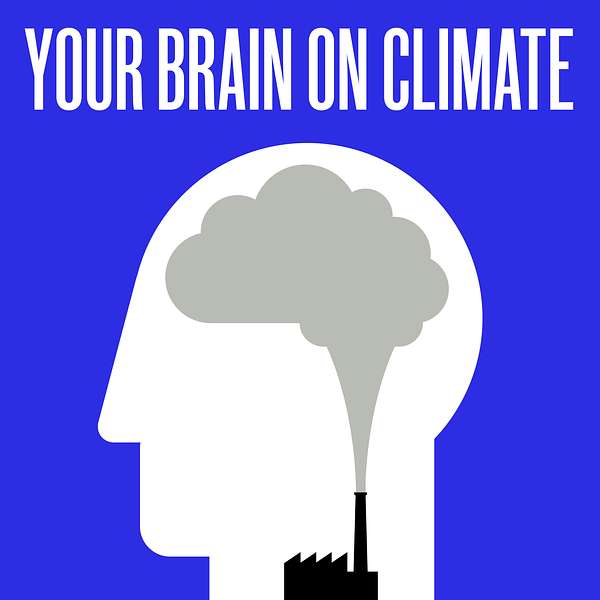
Your Brain On Climate
Your Brain On Climate
Behaviour Change, with Lorraine Whitmarsh
Are we responsible for how we behave? If so, should we feel bad about it? And if the answer to those two is 'yes' and 'yes' respectively, how do we change our behaviour? How much of 'behaviour change' is about nudging or encouraging individuals to change, versus how much is banning bad things and making good things easier and cheaper? And are simple answers stupid? (Spoiler: yes.)
Joining Dave this month is the esteemed Professor Lorraine Whitmarsh MBE. Lorraine is Prof of Environmental Psychology at the University of Bath, UK, and runs the Centre for Climate and Social Transformations (CAST). She's an expert in a hundred thousand things, several of which help her know how to change our behaviour and whose job it is.
Owl noises:
-- 07:34 - The Climate Change Committee advises the UK government on, er, climate change. It says about 60% of emissions cuts to come require behaviour change in some form. You might also like this report Lorraine wrote for them about how to do that.
-- 20:25 - An excellent primer on nudging from the Decision Lab. And at 25:18, here's them on sludging.
-- 24:01 - The Austrian nudging experiment.
-- 32: 24: Fly lots? Pay disproportionately more tax. Here's the Frequent Flyer Levy idea.
-- 43:17: Lessons from Covid for climate, from CAST.
Your Brain on Climate is a podcast about human psychology vs the climate crisis: what we think, why we think it, and how it all adds up to a planet-sized emergency. Contact the show: @brainclimate on Twitter, or hello@yourbrainonclimate.com.
Support the show on Patreon: www.patreon.com/yourbrainonclimate.
The show is hosted and produced by me, Dave Powell, who you can find @powellds on Twitter. Original music by me too.
Show logo by Arthur Stovell at www.designbymondial.com.